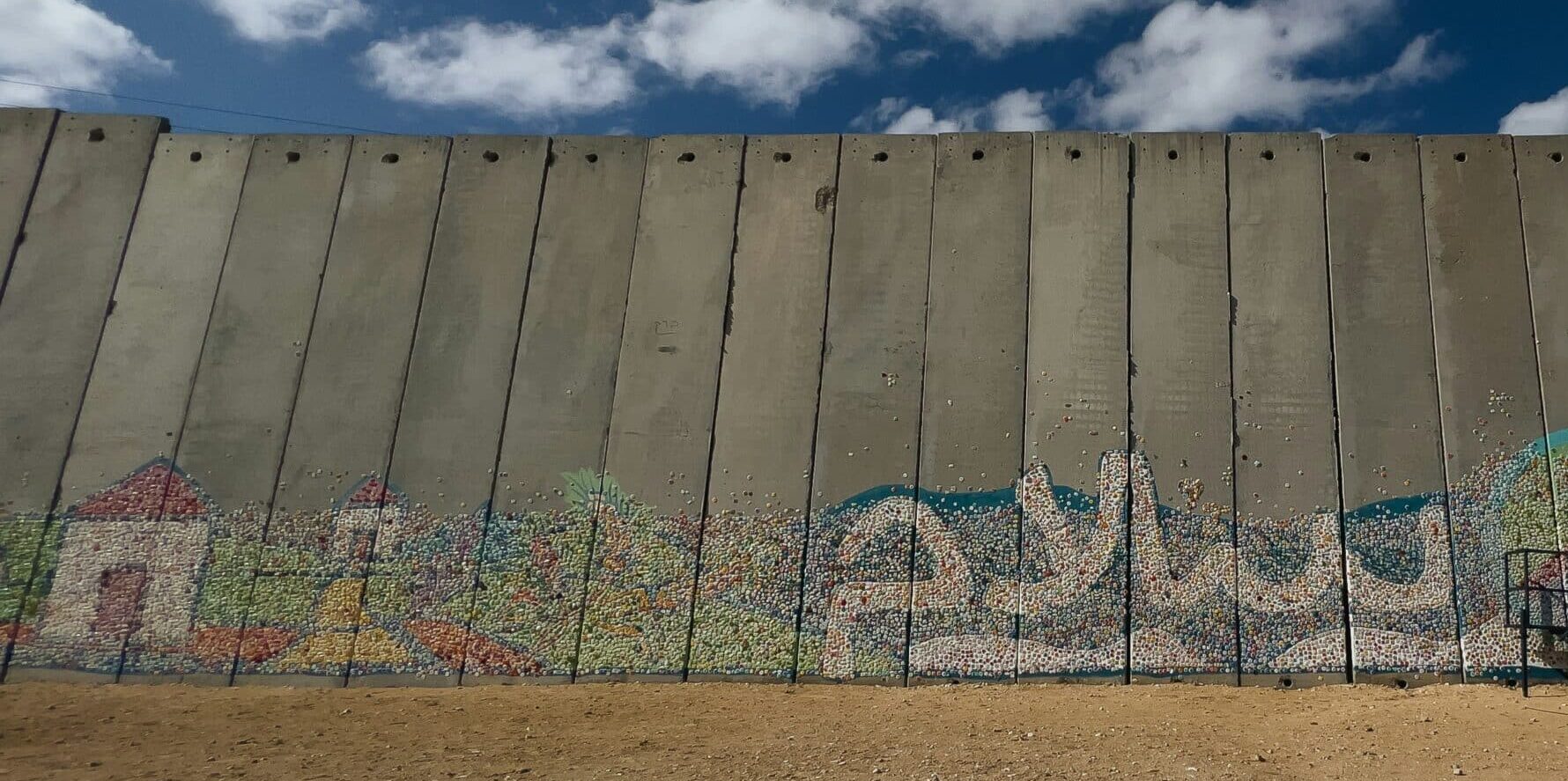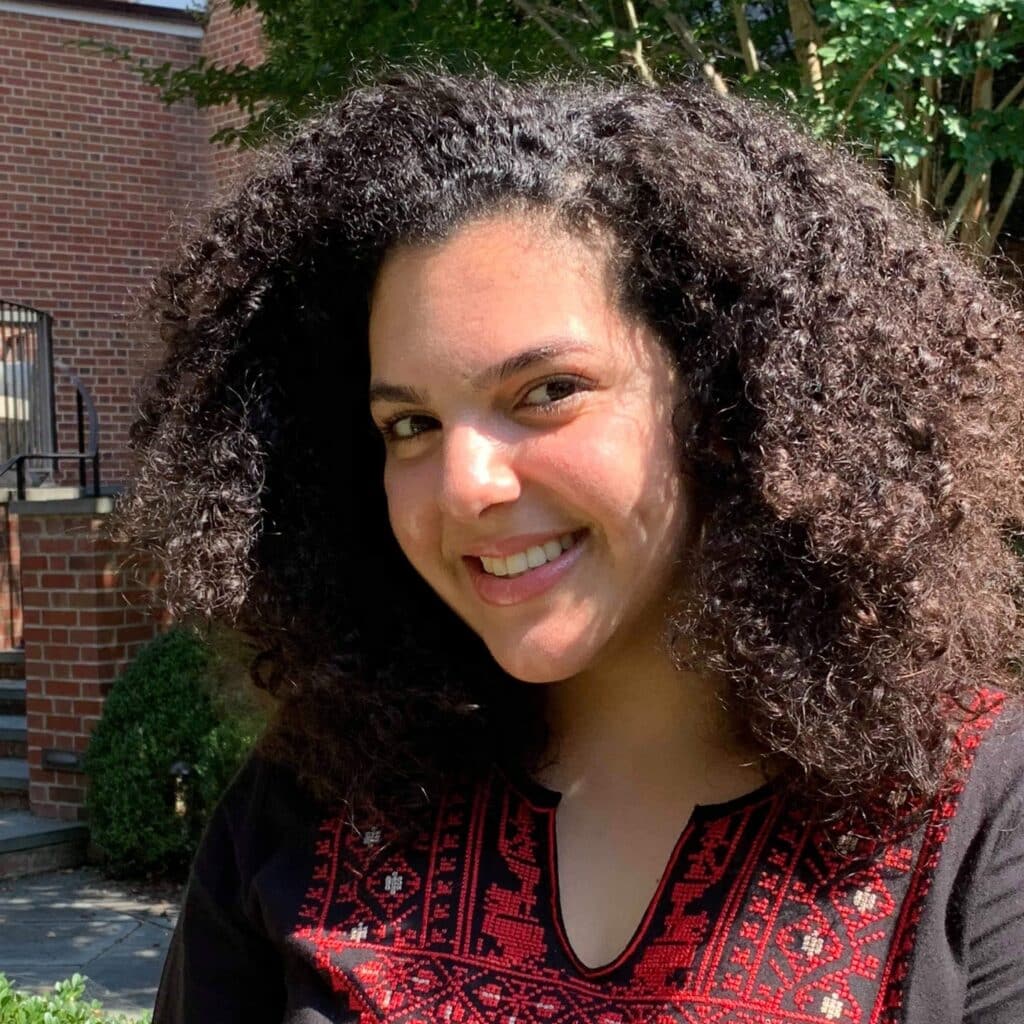From the front lines: a call to just peace
Posted by Difference on September 15, 2025
International Day of Peace
As violence and injustice persist across the globe, Palestinian Christian Kristy Shammas reflects on the International Day of Peace – urging Christians on the front lines to reimagine peace as a bold act of justice and faith.
As I sat to write this blog, I had to think a bit about how to talk about such an important theme. “Peace” is a positive word, one that everyone should desire and work for, but in order to do so, we must be unified in our understanding of what it means and reflect on the bible’s teachings on how we can be true peacemakers.
As a Palestinian born and raised in a country tormented by decades-long colonialism, I have had my own journey in understanding peace, and what peace means for me – but also for all those experiencing oppression of any kind. I’ve often encountered definitions of peace that disregard the oppression and injustice that fills my country and that my people have long endured, and that dismiss my experiences and those of many oppressed groups.
To move forward as churches and communities, we must acknowledge that this world’s current definition of peace is not one that pleases God. In this world ruled by dynamics of power, peace is defined and accepted as the submission of the weak to the strong, acceptance of status quo, and obedience to the state and its oppressive systems. God tells us the opposite, as he has shown us through his son. On the contrary to what the world tries to convince us, the peace we must work for is just because HE is just. Justice is the key ingredient for healing of communities that’s missing in the peace discourse.
Naim Ateek’s “A Palestinian Theology of Liberation” is a profound piece that advocates for peace rooted in justice. He lays out a liberational framework for the Palestinian struggle and situates it within the broader movement for liberation. He critiques the misuse of the biblical promises of land and justice to justify oppression and argues that true biblical interpretation calls for justice and reconciliation. His book emphasizes that faith must challenge systems of oppression and invites faith communities worldwide to support Palestinian rights and work toward a just peace in Palestine, and everywhere.
Just peace centers the experiences of those less fortunate, persecuted, and marginalized, and works to address the root causes of their suffering. It works to dismantle the oppressive systems that hinder the development of marginalized communities – not to strengthen or enable them. When Jesus came, he did not accept nor abide by the system and its rules; he rejected it and gave teachings that defied it. In the same way, peacemaking is not supposed to be comfortable or easy – it requires discomfort and effort. It requires stepping up, speaking the truth, and often causing disturbance.
In these times of grave inhumanity, laid out before our eyes and on our screens, we must be disruptive. The intensity of our efforts must respond to the intensity of circumstances we live in. We cannot afford to stand by and merely object; we must be true agents in the work for just peace.
So how can we exercise the Difference habits of being curious, being present, and reimagining in our pursuit of just peace? I’d also like to invite us to incorporate an additional habit:
- Be present: In order to be peacemakers, we must first be present in our communities – active and engaged, aware of the context we live in. We must acknowledge achievements as well as failings of our communities.
- Be curious and compassionate: We must think outside of our realm – outside of our own communities – and seek to understand other contexts and other struggles for liberation, because injustice anywhere is injustice everywhere.
- Be courageous: We must be bold in our words and actions – speaking truth, challenging oppressive systems, standing with the oppressed and marginalized, and seeking justice, as Jesus did.
- Reimagine: We must break free of the definitions and rules of oppressive systems and discard colonial, nationalist, and supremacist discourses that marginalize and silence communities. We must reimagine what peace looks like per the bible’s teachings.
As Christians, our work for peace is not informed and guided by this world’s definitions, but by God’s word. It is part of our message and mission on this earth as entrusted servants of God to seek and work for just peace. We must understand that peace in this earthly world is a mission that takes a life of work and ministry, but we must be reminded that genuine peace is the one only our God can provide.
“Peace I leave with you; my peace I give to you. Not as the world gives do I give to you. Let your hearts not be troubled, neither let them be afraid.” (John 14:27, ESV)
But, as he called on us to do, we must also be “the salt of the earth”; we must live our lives doing everything we can to be a light in this dark world. We may never be able to bring genuine peace to the world, but we can find inner peace in doing the work of compassion and helping others find that in them. We can console others and stand up for them when they need it; in that we create little spaces of peace, and work for a more just world just as we work to be closer to his image.
Finally, when Jesus came to this earth, he said: “Do not think that I have come to bring peace to the earth. I have not come to bring peace, but a sword” (Matthew 10:34, ESV), He knew that not all would follow him and his word. These words speak to us today as we navigate a world that is fragmented, where not all will open their eyes to the truth and embrace just peace. We must be mindful that as bold peacemakers, we will face persecution, just as Jesus did when he came to challenge this world’s way of living. But in that, we rejoice in our commitment to the faith journey and his unwavering promise of eternal peace.

Kristy Shammas is a project manager at a Palestinian NGO, working to empower youth and women through social and economic initiatives. She serves in youth ministry across the Diocese of Jerusalem. As a Palestinian Christian, Kristy is deeply rooted in her land and faith – committed to preserving Christian presence in the Holy Land and living out the message of hope where Christ once walked.



